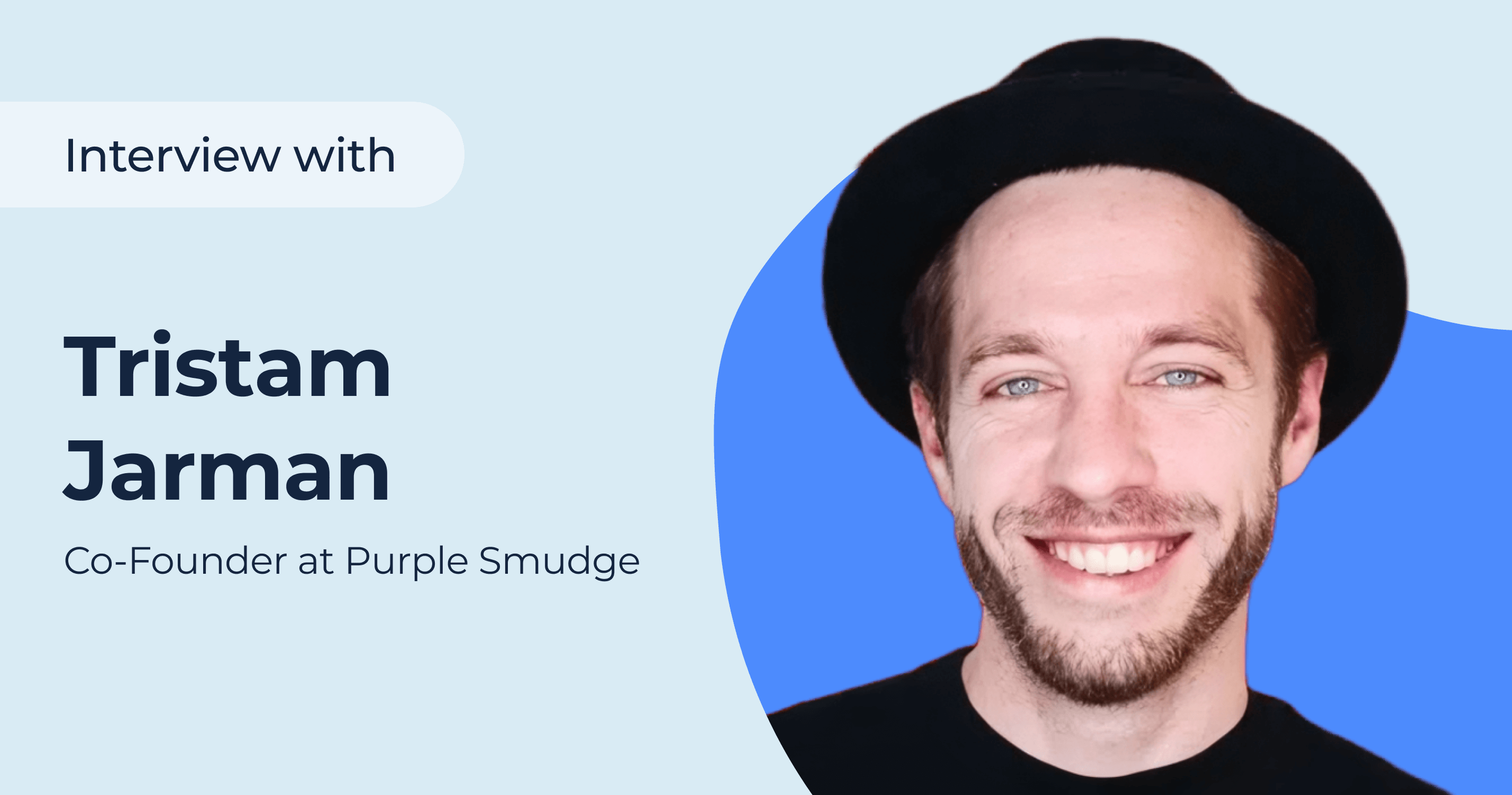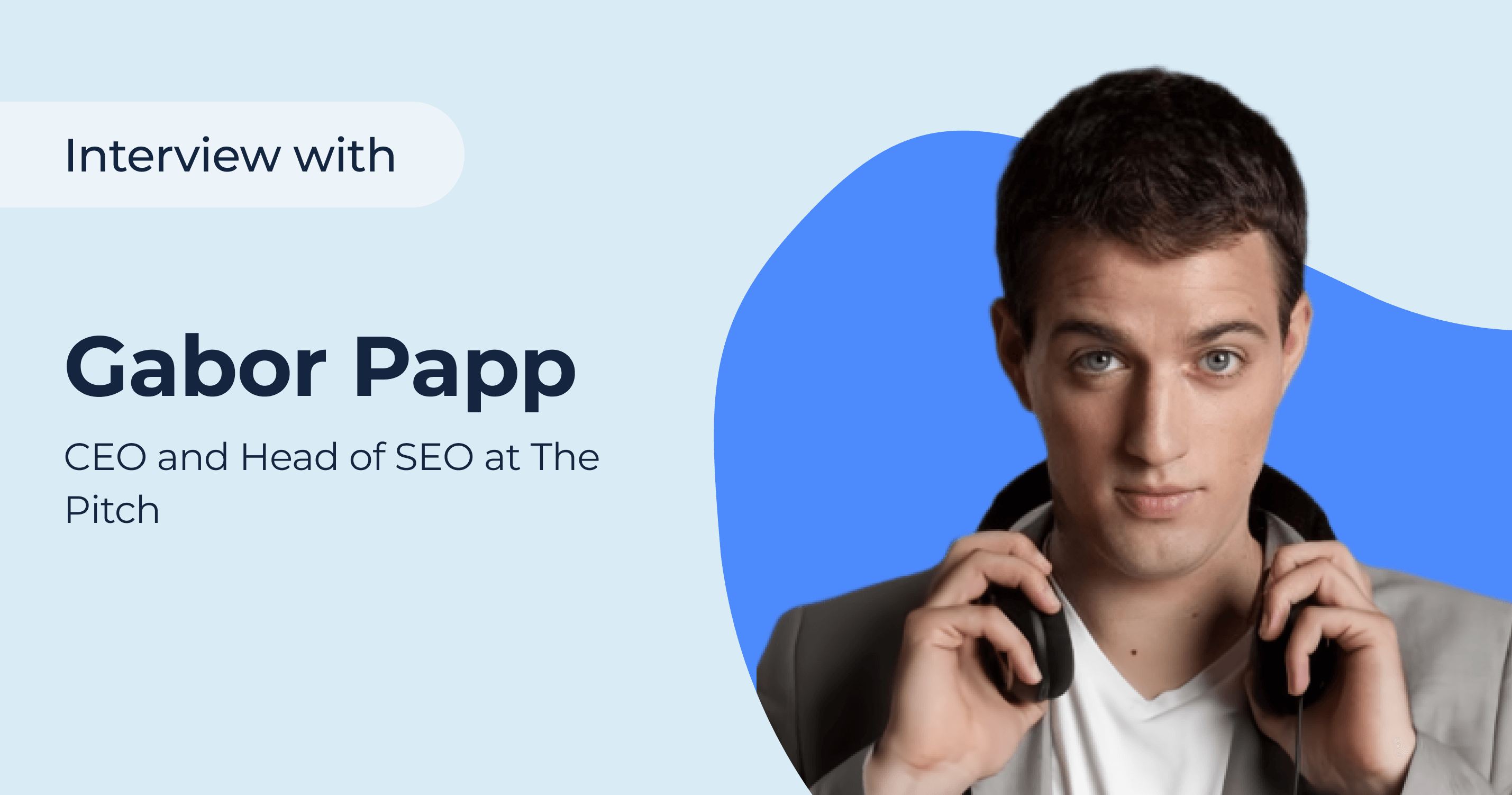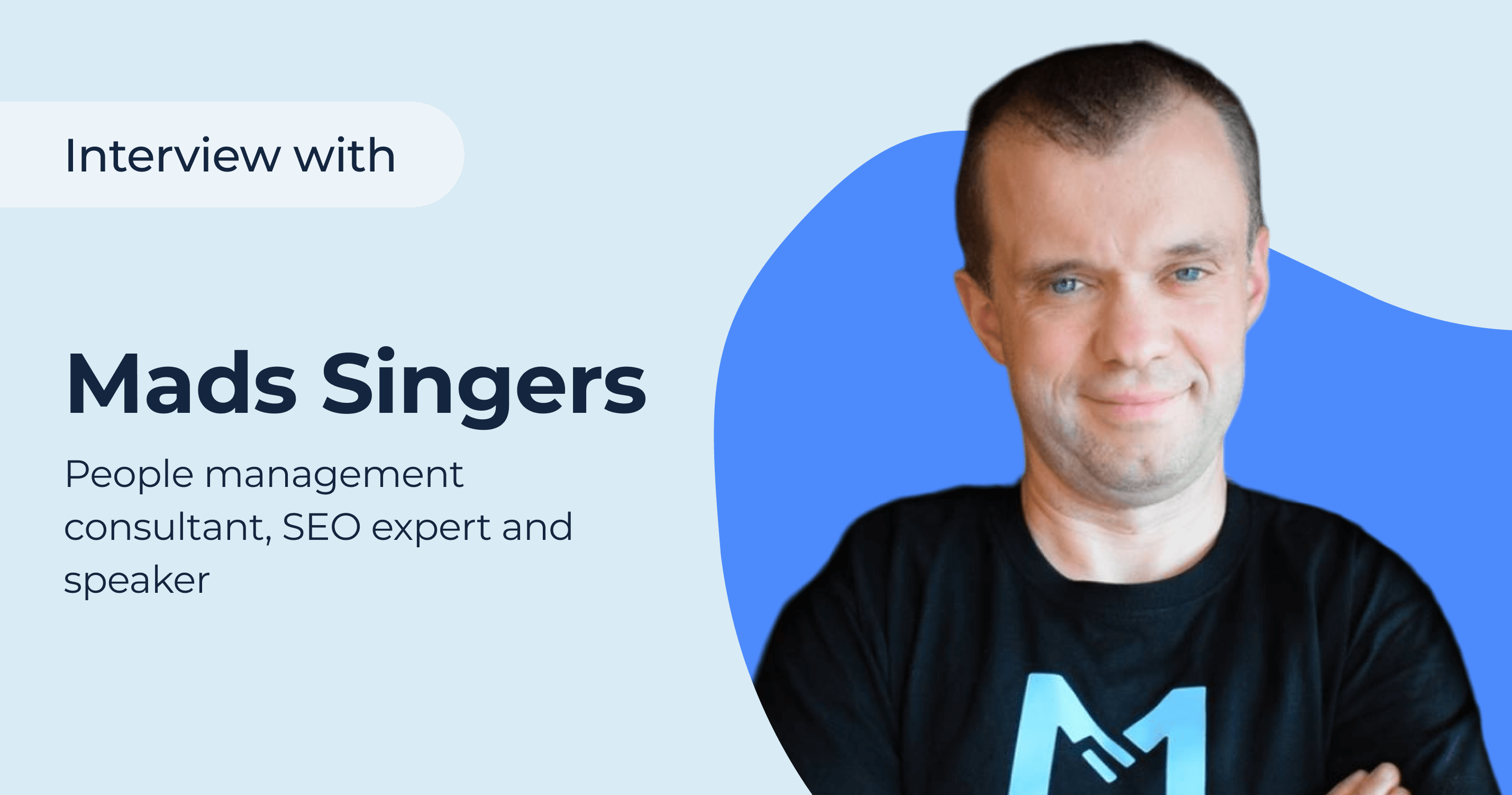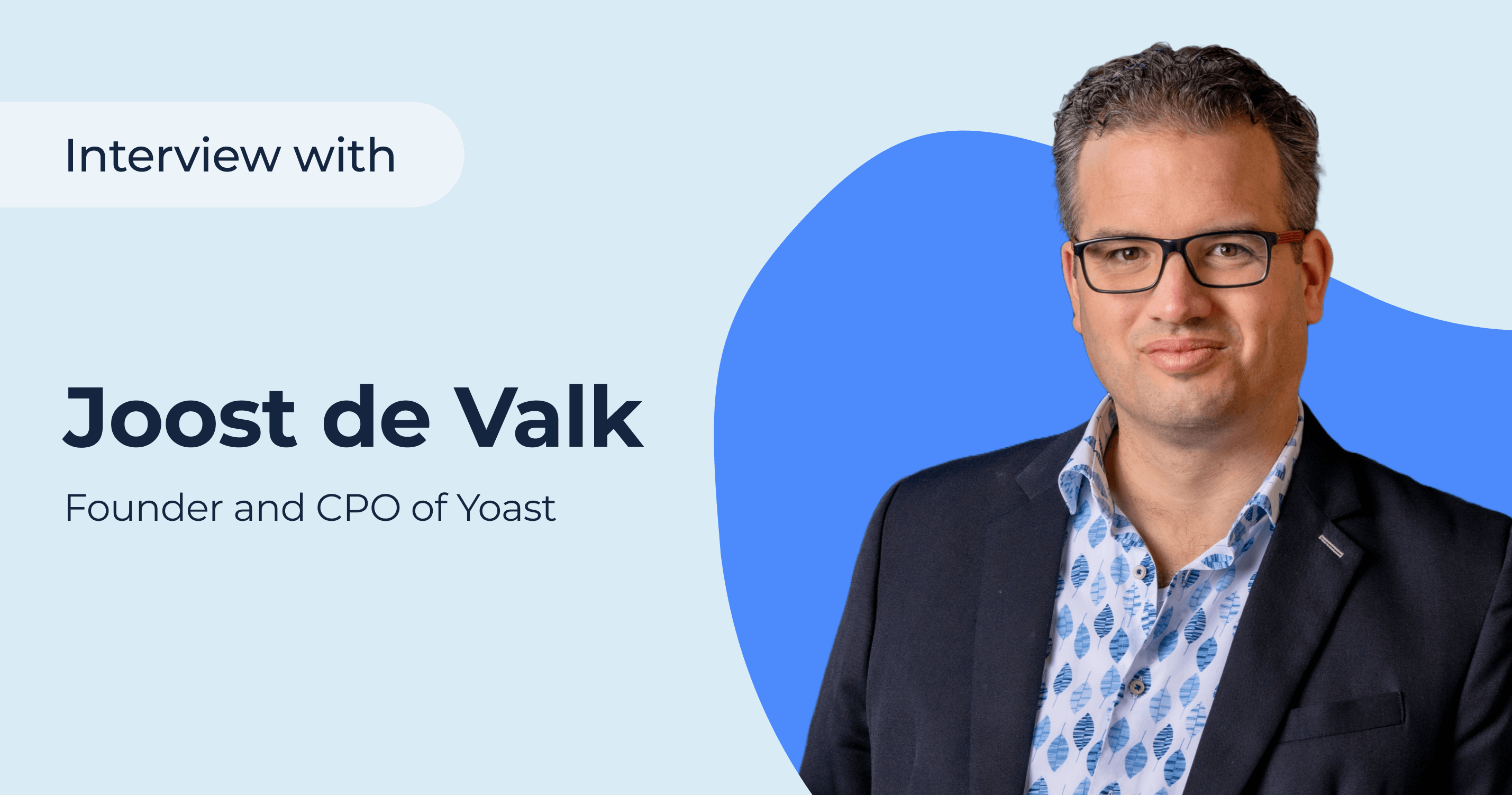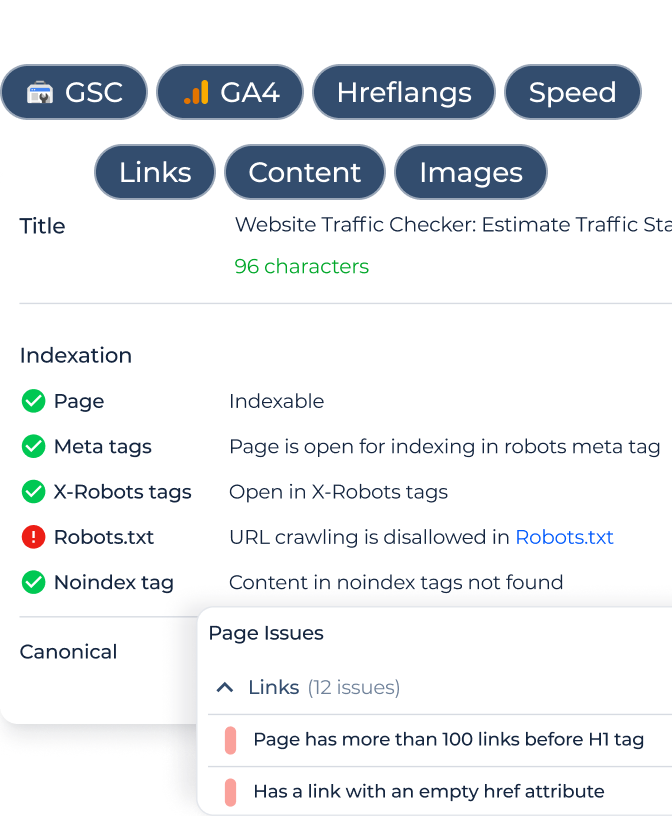Tristam Jarman has been working in the Digital Marketing sector for over 10 years. He is Co-Founder of Purple Smudge, a Brighton based digital marketing agency. Tristam shared his valuable SEO, Analytics, Social Media, Content Marketing experience and SEO tactics. To know more about Tristam Jarman’s projects, follow his Twitter page.
1. How many years of experience in digital marketing do you have?
I have been working in Digital Marketing for around 10 years. This has been in many capacities and many roles. In the early 2000’s I originally wanted to start a small clothing company. I didn’t know where or how to sell these products. I thought, hey why not set up a website. This meant I learnt web design, development, graphic design and a whole bunch of other skills from the ground up.
You may have guessed, the clothing company didn’t go anywhere. What I learnt did however open the door to my first marketing roles. As I’d gained the skills and knowledge required to get me in the door for interviews.
This then spiralled over the years and my passion for digital marketing and SEO flourished. I wanted to learn more and more as the years went on. It became addictive.
2. What type of digital marketing you have the strongest skills?
SEO is my passion.
In my opinion, SEO is the staple and backbone of a website.
Tristam Jarman, Co-Founder at Purple Smudge
SEO can be a slow burner but without it your website won’t last the distance. Consider SEO the training element to a marathon, if you don’t train and keep at peak performance you won’t last the race.
3. What projects you have launched recently you are proud of?
Working with one client I have improved their organic traffic by over 133% YoY. Organic revenue increased by 78% YoY. Something the client was more than happy with. As they were not performing well previously before working with Purple Smudge. Improving rankings and traffic is great but for an e-commerce client if there’s no additional revenue being generated these can moot points.
4. What do you do to further your own SEO knowledge and skills?
I literally don’t sleep and continually learn… I’m joking, that’s impossible. I love attending SEO conferences as do many. Meetups are a great way to share and gain knowledge. Sharing knowledge is a huge thing I advocate in SEO and digital marketing. There’s little point to hoarding knowledge. If we all had that attitude the SEO space would be a far safer place.
Twitter is a great place to ask questions and gain knowledge. Twitter chats that are held weekly are awesome. Webinars, Facebook groups are also invaluable. Then there’s multiple industry-leading blogs and sites that put out great information.
Finally testing and refining your skills on personal sites is a perfect place to see what’s working and what’s not.
Keep learning, keep pushing forward. Share, inspire and be inspired.
5. Is there any marketing or SEO blog you like most of all and why?
There are a number of blogs which are great. Here are a few I read, SEMrush, great for SEO knowledge, processes, updates in the industry etc. Search Engine Land, great for updates on SEO and industry information. mariehaynes.com, she’s incredibly knowledgeable and is incredibly passionate about SEO. Make sure you sign up for her newsletter!
There’s many more!
6. What are the TOP-3 errors you made at the beginning of your SEO specialist career?
Initially not having a full understanding of the power of having sound Technical SEO viewpoint of your website. Writing awesome content is great but if you ignore the mechanics behind this and how your website functions, get crawled, indexed and ranks. You can shoot yourself in the foot without even knowing it.
Ensuring that your traffic converts. As the saying goes; ‘You can lead a horse to water, but you can’t make it drink’. Make that traffic count, work on conversions. Otherwise, you will not be getting the conversions/revenue needed and that sucks.
Google Analytics is not out of the box product. It needs to be tailored to your business and business needs. It’s much more than just putting the code on your site. Ensure that you have invested in your reporting and analytics suite. Make sure it’s giving you the information you need to make those critical decisions. Bad data leads to bad decisions.
7. What SEO tactics do you think are underrated?
Video for many is still underrated. I hope to see this change in 2020 and beyond. There are multiple ways we as humans consume and learn information. Not everyone likes or wants to read. For some reading is perfect for them. Others prefer to consume and learn through video. Others learn through repetition. Start to understand your customers more. Is video right for your business? How can you harness its power for your advantage?
Studies from Google and other organisations have shown that 6 out of 10 people would rather watch online videos than television. In many ways, it seems that YouTube has now become the new TV. YouTube is a huge search engine, still many don’t view it that way. Videos are more and more prominent in search results. Don’t get left behind. Test and refine your tactics this year.
8. What website performance items should always be tackled when it comes to Google’s recommendations?
Mobile in many cases is still a secondary thought. Or just left on the shelf. 80% of users used a mobile device to search the internet in 2019. 40% of online transactions are done using a mobile device. It, therefore, seems a little daft to not prioritise your mobile. Google has clearly stated ‘Mobile-first indexing means Google predominantly uses the mobile version of the content for indexing and ranking. Historically, the index primarily used the desktop version of a page’s content when evaluating the relevance of a page to a user’s query. Since the majority of users now access Google Search with a mobile device, Googlebot primarily crawls and indexes pages with the smartphone agent going forward.’ This is something that can’t be ignored anymore.
9. Do you believe that backlinks are Google’s past? Is link building important for increasing the website’s positions nowadays?
Links are still very important. The days of getting as many links as possible from anywhere are far behind us. We need to view this as quality over quantity now. Studies have shown that links are still a top ranking factor. Don’t abuse this though… Otherwise you’ll be drawn into the dark side of the force and we all know where that leads.
10. In your opinion, does the technical health of the website affect the ranking positions in search engines?
As stated earlier in this piece, you can research and write some brilliant content. Yet if the technical health of your website is all over the place you’ll be hindering all that hard work you’ve put in. If Google can’t crawl, index and rank your website due to poor technical health you will have undone everything you’ve worked so hard to create. You can’t see by eye the technical health of your website. I really recommend you invest time in learning how to stay on top of the technical health of your website. It’s also not a one time fix. It should be reviewed on a regular basis.
11. We all know about the June update from Google. Some websites rose, some of them fell. What do you think about the new algorithm? What are the main new rankings factors SEO and Marketing specialists should pay attention to? How do you stay up-to-date on the near-constant search algorithm changes?
Put in place reporting and checks so you can stay on top of changes that happen. Without a clear picture of what your website is doing and how it’s performing, you’ll be working in the dark.
12. Are you going to surprise SEO and Digital Marketing world with something new (tool/app, course, product)?
I’m not currently working on any new tool/app, course, product. I am however always learning how to improve the processes I undertake to ensure there’s less time crunching numbers etc. and more time giving value to my clients to help them drive their businesses forward.
13. How do you make competitors analysis? Please provide a short 1-2-3 steps guide.
Always be reviewing your top competitors in your space. Analyse what they are doing, what are they not doing and how can you find strengths and weaknesses that will give you that edge over the competition. Form a plan of attack and clearly note what your next steps are forward. Lastly, there are many tools out there that can help you with competitor analysis. What are you waiting for?
14. What key factors to measure when planning to launch a website in absolutely unknown to your niche?
Research, research, research. What are others doing out there? Is your niche so niche that the other players in that space have become lazy with their website and marketing. Are there some clear advantages that can help take advantage of and help you overtake them?
15. If somebody asked you to help/make SEO for website, what themes would you decline? And why?
This really depends on where ‘you’ draw the line in the sand. I’ve spoken to many over the years that are happy to work for almost anyone in any niche. I’ve personally come across projects that for whatever reason don’t sit well with me and have declined these projects and moved on. If you’re looking to build a career in SEO then think about what you’re doing and not just the money you can make. The decision is yours at the end of the day.
16. Google webmasters every year say that backlinks do not work. What do you prefer for your website according to them: good backlink profile or high-quality content?
It has to be a balance of both. I personally feel it has to start with great content. As time goes on less and less will want to link to bad content. Low-quality content has a short shelf life. I’ve seen projects that haven’t ever gone after links but due to the high-quality content have garnered links and even going viral. Would you buy or use a website that constantly puts out low-quality content?
17. What is your checklist when doing a website audit?
Run a technical audit, see what you can’t see. How will a search engine view your website?
Be human, browse and use the website as a customer.
Tristam Jarman, Co-Founder at Purple Smudge
Sometimes a client is too close to the website and product to see glaring errors that are hindering the site. Research and learn, what are others doing in this space and niche. There are many more but these are areas that can be learnt and employed by many.
18. In your opinion, does user’s behaviour impact on website ranking in SERP?
Google and other search engines want to serve the user with the best experience. If a user isn’t clicking on your website although you are ranking high in SERP, this is an indication to them that something isn’t hitting the mark. Clicks can be viewed as a vote. Get users clicking through and keep them on your site. Help them answer the questions they are searching for. The customer is number one.
19. In your opinion, does the technical health of the website affect on rankings in SERP?
Does technical health have an effect on SEO? Yes, so get this right and you will reap the rewards.
20. What is your approach to developing an SEO strategy?
Research, data and working with the client. Building a picture of the SEO landscape and understanding what the client/team can execute and implement. This is all key to creating a great SEO strategy.
21. What services/companies/apps have inspired you the most this year?
SEMrush is a great tool, which I use regularly. Obviously there are many that I use for different aspects of digital marketing. It’s an all-round tool that allows you to get a great picture of a website and competitors. Google Data Studio is a fantastic tool that can help save time and help the visualisation of data. Remember to always use Google Analytics, it’s still so underrated and underused by so many. I believe this is because people don’t see the power of the data it can give you. Go mining for those golden nuggets.
22. What are the most critical SEO mistakes you have ever seen in other companies?
People accidentally de-indexing their website and not knowing it. Usually when a site has been updated and copied from the staging server. A simple line of code hasn’t been removed. This can be costly if not found in time.
23. How do you evaluate web analytics to measure SEO performance?
Keywords are a great indicator of what’s going on. Monitoring a backlink profile and running technical health checks. Get your performance measurements in place and it can help save you some headaches in the future.
24. How do you see the future of SEO (in 5 years)?
A really interesting question. I have some interesting opinions probably best to be discussed over a beer or coffee, not to ruffle too many feathers. I feel that voice search is already becoming more prominent and it will be interesting to see how more devices we use become connected. In some ways, I feel this is still in its infancy, with so much more to come. Keep in mind what the user wants and make lives easier.
25. Which SEO or marketing tools can you recommend as a must-have for every SEO specialist?
Google Search Console, Bing Webmaster Tools, Google Analytics are free and should be used without a doubt. The data and insights they hold are invaluable. For paid tools, I recommend SEMrush, Deepcrawl and/or Screaming Frog.
26. What advice can you give for those who are just starting their career in digital marketing?
Create a website or blog that you don’t mind breaking, fixing and testing on. The industry changes and evolves so fast. Keep learning!
27. How to make a website search engine friendly? Could you please name the main steps?
Create awesome content that people want and need. Think about the user and keep things simple and speedy. That includes how people can navigate and purchase from you to how the website functions.
28. SEO is such a controversial thing. Every SEO specialist rate its success differently. What is your way to rate SEO success? What metrics do you look at?
Everyone’s measure of success is different. Create some goals from the outset. I always believe that success is about bringing consistency and serving the user what they need. Build on this and you will create long term success.
29. In your opinion, a good SEO specialist should be a good analyst? What extra knowledge should SEO specialist have to succeed?
In my opinion, SEO’s are becoming more of a swiss army knife.
You don’t have to be a wiz at analysing data. Being able to take data and trends to get a better picture will help set you above others and get more from your SEO efforts.
Tristam Jarman, Co-Founder at Purple Smudge
30. What SEO analysis metrics you pay attention the most?
Improving CTR is a great metric to pay attention to and improve. I’ve seen many sites that rank number one for a keyword, yet have an incredibly poor click through rates. Work on improving this.
31. You are noticed at many digital conferences. How important live communication is for business? How does it work for you?
Conferences are a great way to meet people. I find it key to speak with and meet customers and potential customers. There’s nothing quite like face to face interaction to help cement and build relationships.
32. Should a business have a corporate blog?
Most definitely, if used and deployed correctly a blog can be a powerful SEO tool for a website and business. It can also aid you in becoming a knowledge provider in your niche.
33. How can start-ups and early-stage businesses use SEO effectively to drive traffic to their sites?
Following on from the previous question a blog is a great way to gain traction with SEO. It’s an open door to create great content that will start to drive traffic to your website.
34. What do you prefer the most: client SEO, own projects, consulting, something else?
There’s no one area I prefer to be honest. I love helping business and clients get more from their websites. Finding opportunities is always great and showing clients how to find new avenues to gain more traction from their SEO. I also like to solve problems, especially when it comes to technical SEO.
35. What strategy do you prefer: launch and grow many small projects or work on a few solid projects?
I like working on long term projects and seeing them grow, whilst helping clients and team grow their knowledge at the same time. Likewise, I also like being brought into work on one-off projects like audits. A balance of both is fun for me.
36. Have you ever used black hat and grey hat SEO tactics? What do you think about them?
I work on keeping things natural and organic. I feel this is the best way to grow steadily over time. It’s very interesting to hear about these techniques but it’s not something I employ in my work or company. I’ve seen too many times, things going south for companies and their websites following quick win tactics. That’s just my opinion though.
37. Have you ever run Google Ads campaigns? How do you combine Google Ads campaigns and SEO?
We run both SEO and PPC at Purple Smudge and work closely on getting the balance right with these two channels. We see PPC as the sprint and SEO as the marathon. Many see PPC as instant and SEO as taking too long, yet there needs to be a balance to get everything working harmoniously.
38. Does your university degree help to succeed in SEO and digital marketing?
I didn’t go to university. I definitely don’t feel this is a requirement. If you’re prepared to research, learn and test you can do great things with SEO and digital marketing.
39. Can you share your professional and business plans for the next 2-3 years?
Not something that can be summed up in a paragraph. Growing Purple Smudge is an obvious area that will be continued to be built on. Apart from that I’m always learning and finding new things to try out and test. Video creation is definitely an area which I’m just dipping my toes into, keep your eyes peeled for more of this to come this year and the next.
40. Can you describe in a few words your strategy how do you work with any project from start to finish?
No two projects, websites or companies are the same. Therefore there’s no strategy that fits for all. Gaining as much information and knowledge about a project is key before I jump into a strategy.
41. What can you tell about mobile SEO? Is it true for you that mobile SEO will absolutely force out desktop soon?
I don’t know if mobile will force out desktop. We search differently between devices for different reasons. This is something I keep my eye on closely, as you want to stay at the forefront of what’s changing. I still remember years and years ago some people were in disbelief that mobile device use would ever overtake desktop… We’ll have to watch this space.
42. Is it important for SEO success to have high-quality content or optimized meta tags?
Both are important, I believe high-quality content is still a key factor in SEO success. You don’t want to be a company and brand that creates low-quality content. If your competitor creates better content then you’ll likely be left in their dust.
43. Structured data is becoming more and more important these days. How do you think why? Why did Google start to pay so much attention to structured data sites?
Structured data is helping give users quicker answers to their questions. Google wants to give the best experience and results to its users. It also gives SEO’s and content writers an understanding that it’s not just about your website anymore.
